Ethical Investing through CIG
CIG works with Episcopal Church endowments to adopt sustainable investment strategies and ethical investment policies. CIG meets with Dioceses and endowed parishes, as well as participating in forums such as the Episcopal Parish Network, to educate Episcopal endowments as to the advantages, ethically and financially, of adopting sustainable investment approaches and employing full time investment management. CIG also works with Episcopal endowments to implement proxy voting of their equity holdings. Proxy initiatives can help improve corporate sustainability and good governance.
Investment approaches
Ethical and professional management of Episcopal endowments and entities is critical to the well-being of the Episcopal Church, providing us with the resources needed to advance the Church’s mission.
Four Action Steps for Faith-Based Investing:
- Embrace values-driven investing by excluding specific industries that conflict with your beliefs, i.e. tobacco and firearms. Implement the Episcopal Church’s “No Buy” list.
- Proactively select investment managers who assess environmental, biodiversity, and social factors in equities and fixed income investments.
- Engage with the companies in your investment portfolio trough proxy voting, ensuring that your values are represented. Collaborate with proxy voting experts like iconik or As You Sow to make informed decisions.
- Consider Impact Investing for profitable investments in environmental and social solutions. How and where are your cash and fixed income invested? Explore thematic public and private equity funds.
Ethical Investing Resources
An Educational Roadmap for Initiating and Intentionally Designed Endowment
The Intentional Endowments Network has a roadmap for the process of learning about and implementing a mission-oriented investment process. IEN also has an Education Center section which includes the roadmap and other resources.
Selecting a New Investment Advisor
Values Advisor (your Episcopal entity can sign up at www.valuesadvisor.org/createaccount using the partner code CIG). Values Advisor is a non-profit, which pre-screens a collection of investment managers who deliver both financial and environmental/social returns. Episcopal endowments can search for an investment advisor by criteria of size, location, and investment approaches.
Screening Existing Investment Holdings
Invest Your Values – As You Sow. Invest Your Values is a free online tool that analyzes the climate and social impact of thousands of US mutual funds, ETFs, and 401k plans.
Equivalent Performance from Ethical Investments
Studies on profitable ethical investing at Church Investment Group’s website. Academic studies on the comparable profitability of ethical investing approaches.
Freedom to Invest
Church Investment Group is a signatory to Investors and Businesses Call on Policymakers to Protect the Freedom to Invest Responsibly reminding policymakers that they must be free to consider all material financial risks and opportunities to plan for the long-term and build stronger, more resilient investment portfolios.
Faith-Based Investment Selection Considerations
Environmental Values
Companies that plan for resource efficiency and measure, manage, and disclose and actively plan and act to reduce their environmental impact. They promote solutions in Renewable and Clean Energy; Clean Transportation, Clean Water, Clean Air, Natural Resource Efficiency & Stewardship, Sustainable Food & Agriculture
- Emissions: Does the company monitor all direct and indirect emissions from its operating cycle?
- Climate change risks: is the company appropriately considering how its operations are affecting the global community?
- Water management: Does the company thing about its sustainable water usage in its business practices?
- Operational waste: is the company taking necessary steps to reduce operational waste and precautions when disposing of harmful waste?
- Biodiversity impacts: Does the company understand the ecological impacts its processes can have on local communities?

Social Values
Companies that support workplace well-being, human health, worker and product safety, and inclusivity and diversity.

- Labor practices: Does the company have good employee relations, provide safe working conditions, have fair compensation practices, and promote workforce diversity?
- Customer welfare: Does the company use honest marketing tactics, provide adequate product disclosure, and guarantee product quality/safety?
- Data security and privacy: Does the company protect its intellectual property, secure its customers’ private information, and disclose how customer information is used?
Governance Values
Companies that promote shareholder engagement, fair executive compensation, board diversity, anti-bribery and corruption practices, conscientiousness regarding human rights, sensitivity toward communities in which they operate and full governance disclosure.
- Shareholder disclosure: Does the company provide accurate and timely information to shareholders and avoid aggressive accounting practices?
- Systemic risk management: Does the governance structure have an innate focus on risk management and encourage ethical practices?
- Board of directors: Does the company’s board maintain effective practices that balance growth and profitability, include independent industry experts, separate the CEO and chair role, have practical oversight committees, consider long-term capital allocation plans, seek diversity in board composition, and implement long-term compensation packages that align management with shareholders?
- Management team: Is the management team properly incentivized by being aligned with shareholders? Has the management team been stable, which generally aligns more with long-term thinking?


